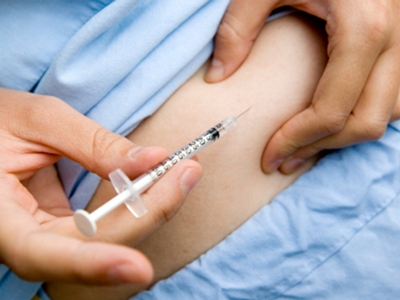America's diabetes epidemic threatens quality-of-life
Diabetes is becoming a mere epidemic in America. It is estimated that at least 21 million Americans have a form of diabetes. However, 41 million individuals have a pre-diabetic condition which puts them at a higher risk for developing the disease.
There are two types of diabetes—both of which can prove fatal. Type 1 diabetes develops when the pancreas does not have enough insulin production that is required for the body’s metabolism. Usually—this case is seen with a genetic predisposition to the disease. On the contrary, type 2 diabetes is the most common form—presenting more than 90% of the cases seen here in the US. In this illness, insulin is not being used properly in the body.
The cost of such expenses in the US is said to have exceeded more than the amount of wars funded.
Why is diabetes a growing problem in our nation? For one, we can partially blame the lack of adequate care and nutrition many people have. Everywhere you turn you see advertisements on delicious yet obviously unhealthy food that offers no nutritional value.
You see commercials for soft-drinks everywhere—urging you to buy and drink more. You go to the supermarket, and see a lady unloading bags of chips, chocolate, and fried foods onto the food belt at the cash register. Stop and think for a minute—if it were not for the psychological association we get between eating a certain food and feeling a certain way, would our nation and perhaps, world—be headed in a different direction? This really depends on what we are talking about.
Those advertisements you see on TV that associate happiness to a can of coca-cola can be misleading, but because of the potential of association of happiness we see in this canvas of a formally-known green-screen, we go ahead and provide more to industries and factories as consumers. Are we uneducated individuals?
We could argue this fact—but it’s not necessary because it probably wouldn’t change anything. Additionally, recent studies have suggested that pesticide residues and chemical additives like MSG in process foods contribute to hormone disruption and obesity.
Diet-related diabetes is one of the biggest concerns in our nation. (NaturalNews, 2012)
What we truly need, is an assessment of this situation, and a solution to the problem. Diabetes is a serious concern—that many individuals do not take seriously.
“It is a disease that does have the ability to eat you alive,” said Dr. John B. Buse, a professor at the University of North Carolina School of Medicine who is the diabetes association’s president for medicine and science. “It can be just awful — it’s almost unimaginable how bad it can be.”
I — as a writer in this particular topic can say that I have been neglecting my health lately and I realize it. Many individuals in my family have been diagnosed with diabetes and people worry that I may be the next person to develop it. Because I am young, I guess that immortality instinct kicks in more than it should. I believe that I can take advantage of my youth and have a careless diet. Because after all—doesn’t diabetes only affect older people? What about the young individuals who have diabetes?
Is it strictly inherited? These are the questions that I don’t have the answers too, but I realize that this self-evaluation begins with me. The truth is, after my extensive research and study regarding this topic—diabetes can happen to anyone, it has no age. This disease carries a plethora of complications and risks, if not managed properly. These risks may be cardiovascular disease, neuropathy, kidney damage, and eye damage. It has been found that people with diabetes have a higher risk for some types of cancers.
We need to have a true assessment about our reality and the world we live in. Because so many people are affected by this disease, the United States is being forced to spend $174 billion a year to treat the disease—more than aids and all cancers combined. (Dr. Oz, 2012) It’s true that we are what we eat—and our bodies may suffer as a result of this very fact. Preventative measures can be taken in order to avoid the development of diabetes—and these include exercise, a high source of valuable nutrition, observing our weight. Pay attention to how you are feeling and do an assessment on the probable causes. This is your health that you should be guarding, and protecting more than anything else in this world. You only have one body—so make it last.
Tests and diagnosis of this disease are available to anyone who requests. Because the symptoms of type 1 diabetes appear suddenly and are the reason blood sugar levels are checked, you may want to speak with your doctor if you notice any significant changes in your day-to-day interactions. There is a Glycated hemoglobin test, which indicates your average blood sugar level for the past two to three months. It measures the percentage of blood sugar attached to hemoglobin. Additionally, you may request a random blood sugar test that measures your blood sugar levels regardless of the last time you ate, or a fasting blood sugar test which will be given on an empty stomach. If diabetes is suspected, you will have additional blood tests to check for antibodies and the presence of ketones in your urine.
Sources:
Daniels, Peter. "World Socialist Web Site." Diabetes in the US: A Social Epidemic. International Committee of Fourth International, 30 Jan. 2006. Web. 12 Sept. 2012. <http://www.wsws.org/articles/2006/jan2006/diab-j30.shtml>.
Denoon, Daniel. "Diabetes Health Center." Diabetes Epidemic Grows in U.S. WebMD Health News, 3 Oct. 2003. Web. 12 Sept. 2012. <http://diabetes.webmd.com/news/20031003/diabetes-epidemic-grows-in-us>.
Comments
There are 0 comments on this post













